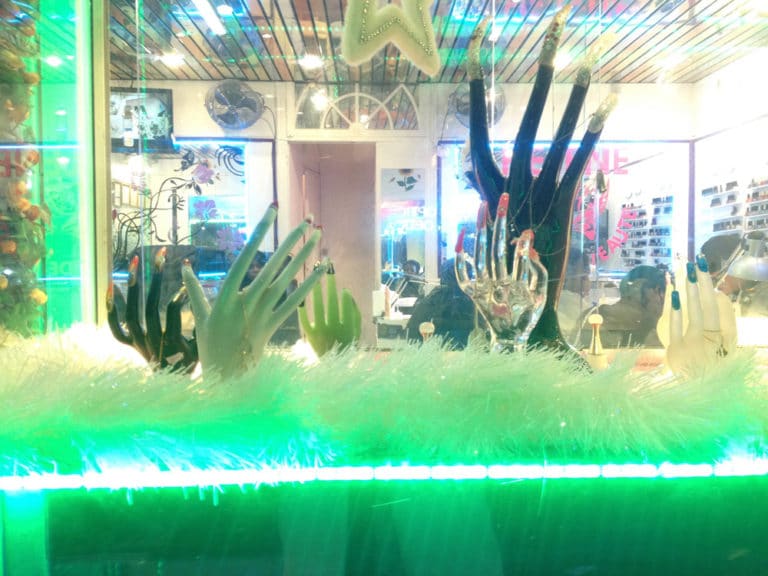How can we tackle anxiety as we become a society of freelancers?

I’m currently sitting in my living room typing at an hour that isn’t the 9-5. This week I’ve worked in a library, a co-working space and a café because, like many other freelance creatives, my work comes with me wherever I go. It can be a blessing and a curse.
What can usually look like an example of flexibility, and is adjustable enough to slot a yoga class in at 10 am, can sometimes turn into a facade of freedom. Most people probably assume that because our work as freelancers has fewer strings attached, we can work whenever we want to. The reality is usually fitting work in and out of the 9-5 hours, juggling multiple bosses and styles of work while being self-motivated and doing thankless jobs such as chasing the accounts team about your invoice. Being a freelancer for many can also feel lonely or with the ebb and flow of cash, stressful when trying maintain your lifestyle. But with the many horror stories we’ve all heard about freelancing and the ever-changing working landscape, the issue of anxiety is one that tends to pop up rather often, but I rarely see it being dealt with.
I’ve been lucky with my mental health that it hasn’t been as crippling as it has for those near and dear to me. Having good mental health is not something I take for granted—if anything, it has felt like one less thing to be worried about. When talking to Sophie Kirk, a friend and freelance creative at The Good Stuff, we discuss how the anxiety of being a freelancer can go either way. “When you work for yourself it becomes about working to stay afloat and you, of course, don’t have the security of work coming in all the time, so sometimes you have to go out and find it”. But Kirk also adds, “I also get anxiety when I take on too much work because I don’t work well under immense pressure and deadlines”. Therefore finding a balance for both your work and mind can be like trying to figure out a jigsaw puzzle most of the time.
In 2018, records showed that 2 million people in the U.K. are working as freelancers, and that freelance work is on the rise. Yet what isn’t matching up to the rising figures is the support for this new type of workforce and its mental health. Building more co-working spaces is great but surely we should also be looking at the common issues that are happening within the growing number of those integral to tightened budgets and an economy that’s slowing down.
This is understandably a difficult conquest, as one person’s mental health is not a flat landscape, and anxiety can be triggered for all sorts of reasons. However, when talking to Albert Azis-Clauson about what UnderPinned was doing to help tackle anxiety and freelance workers, the Founder said, “One of the biggest challenges facing mental health in (and out) of freelancing is a lack of openness.”
The CEO of the practical support network built by freelancers for freelancers explained how it all comes to the infrastructure and how you prioritise the treatment of all employees. “I think unfortunately the support structures for temporary staff just don’t exist in most companies at the moment and freelancers feel like they’re taking a risk with their job to approach a manager about mental health.”
But for UnderPinned, it’s about normalising any conversation around mental health issues. “First, I make myself available personally once a week to my team to talk about how things are going both in and out of the office. By creating a dedicated time to talk about mental wellbeing, people feel more confident to be open to talking about how they feel and how things they might be struggling with are affecting their work,” says Azis-Clauson. Though mental health may seem like a ‘trendy topic’ to discuss, it’s also imperative companies understand that creating a healthy working environment is not about enforcing mindfulness onto others. And while UnderPinned say going forward they are going to introduce a reading hour once a week, gym classes and meditation in the office, and a fancy-dress day once a month, Azis-Clauson also says that it all boils down to taking the time to be educated about mental health issues and truly understanding that there’s no one right thing for everyone.
For freelance creatives such as Sophie Kirk, it’s about trying something new. “I’ve tried all sorts of things since I went freelance. From guitar lessons, skateboarding, bouldering, learning to speak Japanese, baking to embroidery”. For the graphic designer, it’s also about looking at the perks of being a freelancer and understanding that you don’t have to take on a hobby after 5 pm. “It sounds really silly but just getting my mind off work can be really rewarding and refresh my approach. It’s something I couldn’t do when I was in a full-time position because I was exhausted by the evening and treated it as sacred self-care time”. Unlike Kirk, when I feel anxious, I personally prefer to be active when my mind is doing over time. The thing about freelancing is that remembering to stretch, breathe and drink water can be grounding. But for those who have more severe mental health issues, founder of UnderPinned recommended Dinghy, a counselling helpline specifically for freelancers.
While there appears to be more platforms for freelancers, whether it’s working spaces made solely to empower women like The Wing or Women Who, it seems as though there needs to be more mental health facilities to cater to this specific growing workforce as the mental issues among freelancers appear to be common. Though freelance work is temporary, we can’t treat the mental health issues that come with freelancing the same way.




